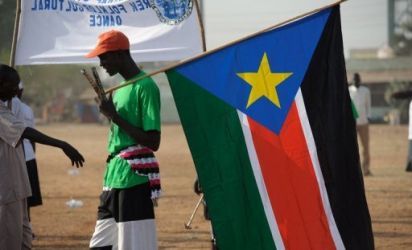Limit president’s emergency powers, S. Sudan opposition demand
By Julius N. Uma
May 12, 2011 (JUBA) – The state of emergency powers given to the president of the Republic of South Sudan, contained in the draft transitional constitution are too extensive and should be limited, 18 opposition parties say in a joint statement.

According to section 187 (1) of the constitution draft, “The president, may upon the occurrence of an imminent danger, whether it is war, invasion, blockade, natural disaster or epidemics, as may threaten the country, or any part thereof or the safety or economy of the same, declare a state of emergency in the country, or in any part thereof, in accordance with this Constitution and the law.”
In a state of emergency, it stipulates, the president may, by law or orders, take any measures that shall not derogate from the provisions of constitution except as provided herein, which includes the powers to suspend part of the bill of rights as well as dissolve the national executive, among others.
Also proposed by the opposition, included within the draft document, are issues such as power sharing and formation of a broad based government, duration of the transition period, national security creation and adoption of English as the official working language.
On national security, however, the opposition rejected the proposal in the draft constitution to create a “Ministry of National Security”, instead preferring it to fall directly under the president.
Meanwhile the status of Abyei, according to the opposition, can only be resolved through a self-determination referendum as provided for in the 2005 Comprehensive Peace Agreement (CPA) or through political resolutions in the form of the ongoing post referendum negotiations.
The 2 May statement says the draft transitional constitution, already before South Sudan Legislative Assembly (SSLA), should have included provisions for the creation of a constitutional court as an independent institution in the country.
“The draft should establish the Constitutional Court as a separate and independent institution, in order to guarantee the interpretations of constitutional matters to the other branches of government,” it says.
The joint statement came just days after five opposition parties walked out of a constitutional endorsement meeting held by South Sudan President, Salva Kirr, in Juba – the regional capital.
The opposition parties which walked out included the United Democratic Front (UDF), Sudan People’s Liberation Movement for Democratic Change (SPLM-DC), South Sudan Democratic Alliance (SSDA), United South Sudan Party (USSP) and South Sudan Democratic Front (SSDF)
Kiir, anonymous sources told Sudan Tribune, lost his temper and said uninterested opposition members were “free to walk out” of the meeting, specifically convened to ensure equal participation of all southern parties in the adoption of the country’s new constitution.
South Sudan is due to become independent after its population overwhelmingly voted for separation during the January self-determination referendum. The vote was a key part of Sudan’s 2005 CPA, which ended decades of war between north and south.
(ST)
